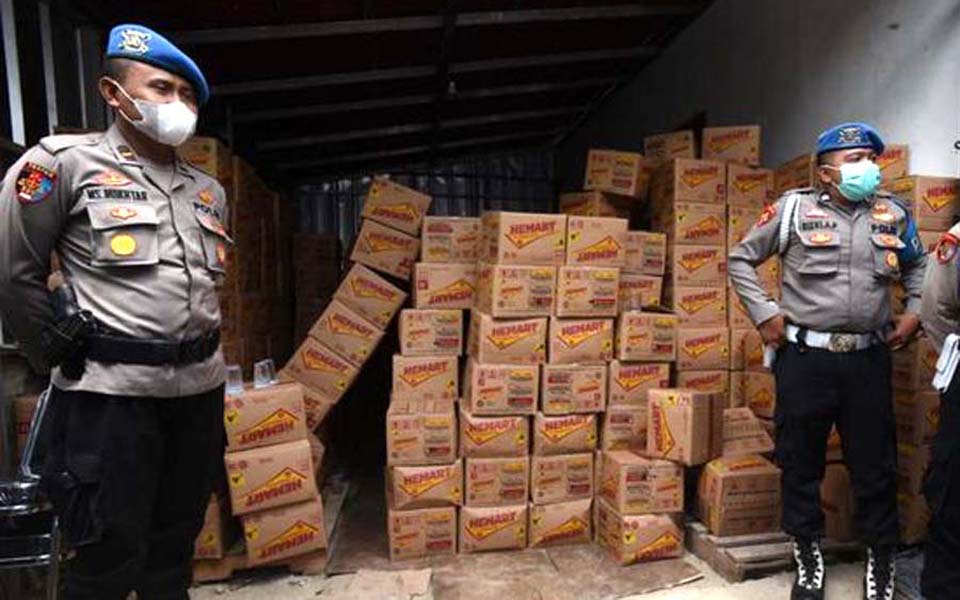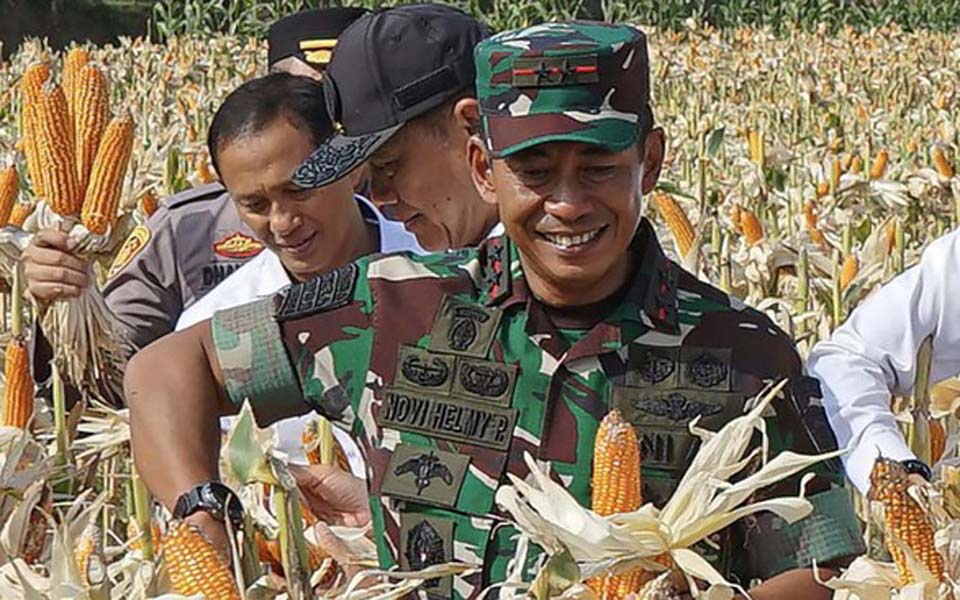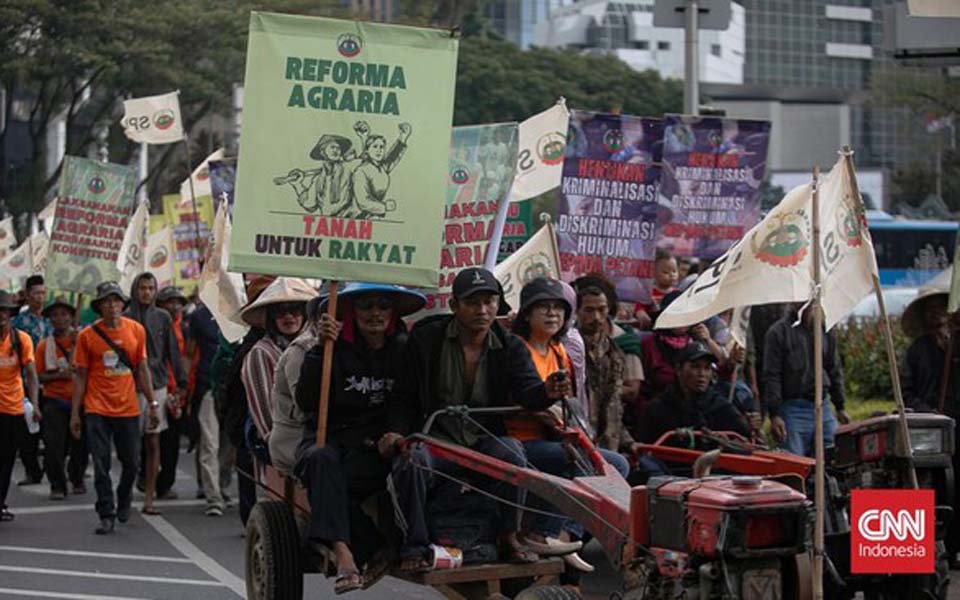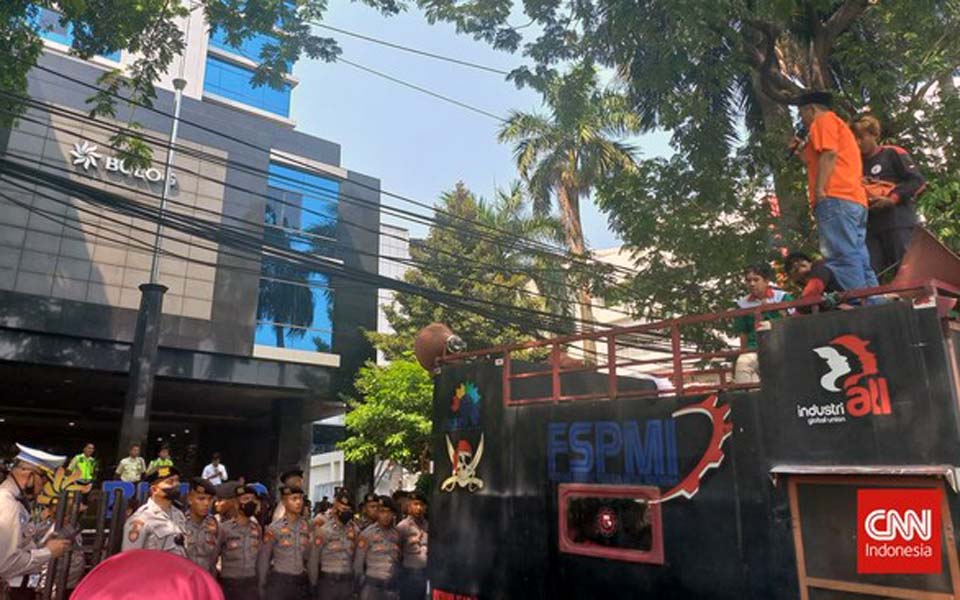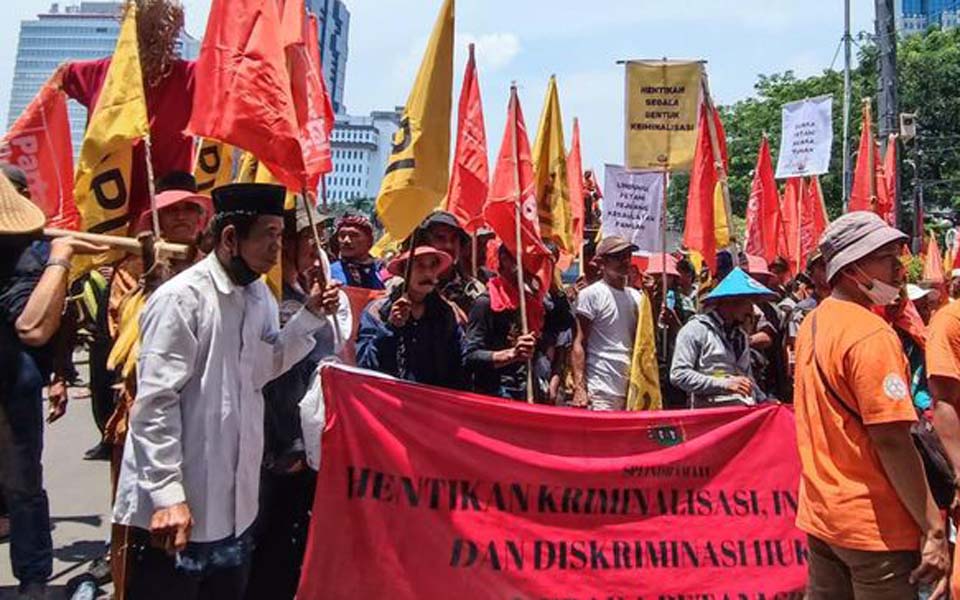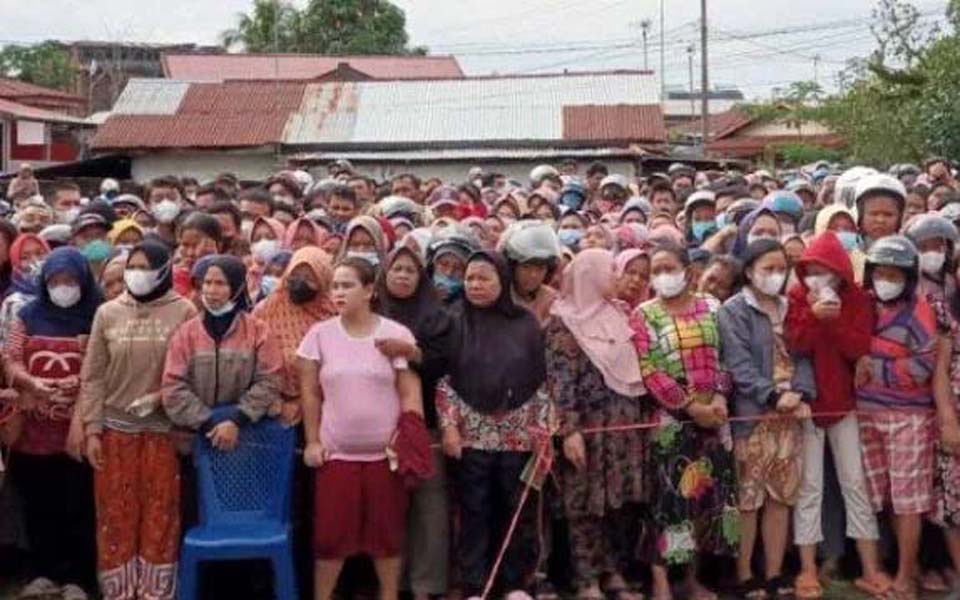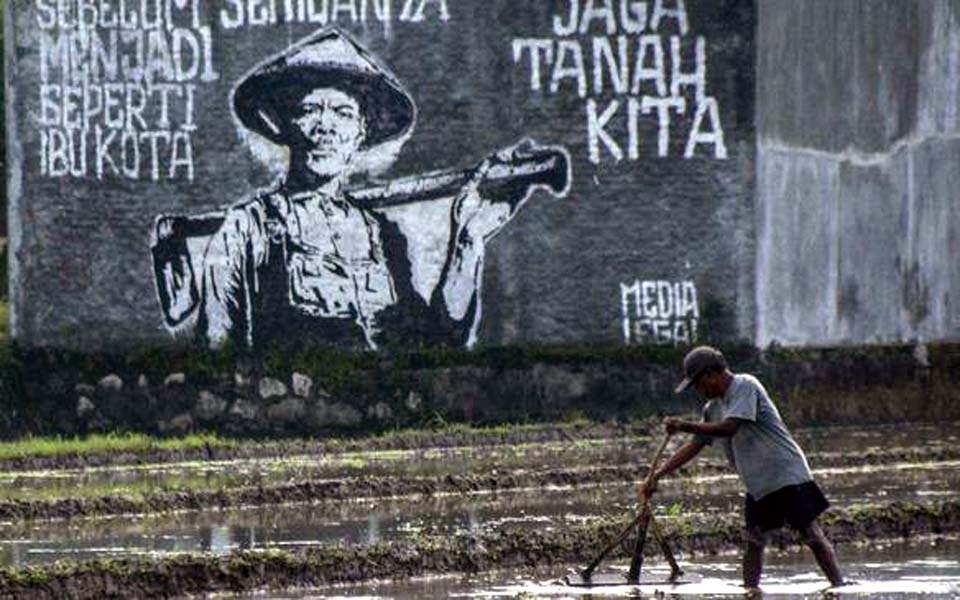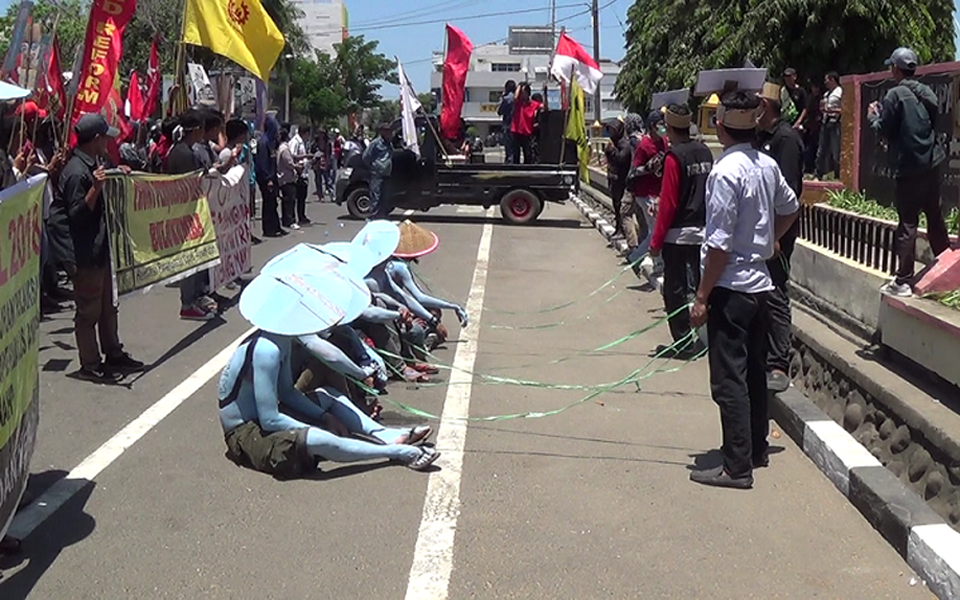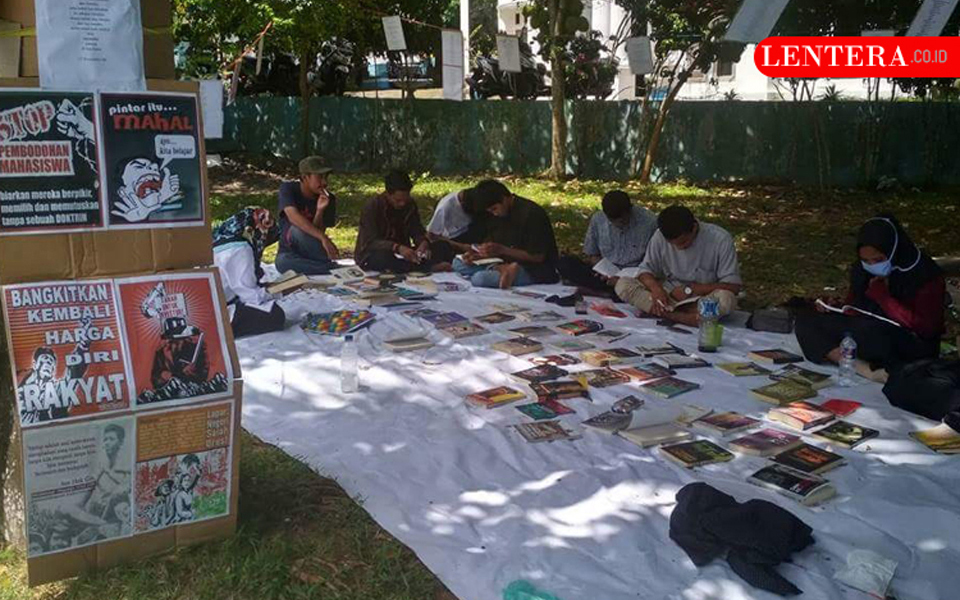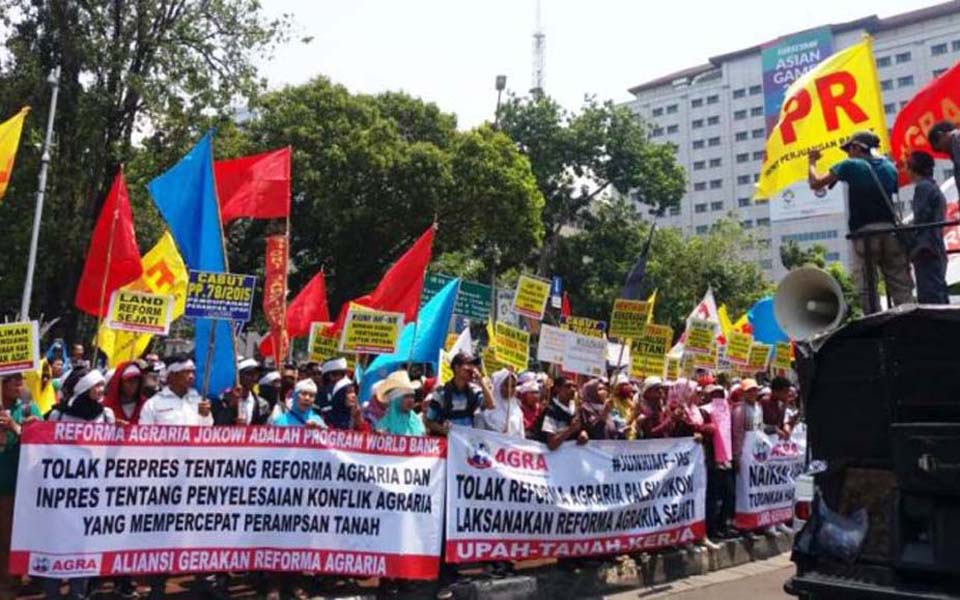Jakarta – The scarcity of cooking oil in various parts of Indonesia has continued for at least three months. Over this time however, the government and police have failed to find the masterminds behind the shortages.
Trade Minister Muhammad Luthfi says that there are at least three suspected cooking oil mafia figures which are beloved to be the culprits behind the price rises and scarcity of basic goods in the market.
During a hearing at the House of Representatives (DPR) Commission IV on Thursday last week, he said that police already have the names of the suspects and even promised that they will announce the names on Monday March 21.
Despite this, after a week passed there was still no clarification on the suspected cooking oil mafia figures that Luthfi was referring to.
Unlike the minister, the police claim that the reason for the hike in prices and the scarcity of cooking oil is because many traders who have recently entered the market who are not following government policy. The police claim that they have not found any mafia practices during the process of investigating the matter.
"What was found on the ground was quite a lot of new traders, resellers and businesspeople who aren’t following government policy. So our preliminary finding is that its more about individual businesspeople, not a cooking oil mafia", said police food taskforce head Inspector General Santika on Wednesday March 23.
Esa Unggul University public policy observer Jamiluddin Ritonga thinks that the police's statement about the absense of any cooking oil mafia in the field is an attempt by the police to "wash their hands" of the case.
Because, according to Ritonga, the cooking oil scarcity and massive price hike over the last three months could not have possibly occurred without collusion by the big players in the market.
"So there is only one possibility as to why they haven't been caught. They are very powerful so law enforcement officials don't have the power to bring them in", he told CNN Indonesia on Friday March 25.
Because of this, Ritonga questions the police's claim of denying the existence of mafia figures and instead blaming new traders or speculators as the culprits behind the problem.
This is because based on data from the Indonesian Vegetable Oil Refiners Association (GIMNI), the cooking oil market in Indonesia is controlled by just five big companies. This situation, he says, undoubtedly gives rise to a market monopoly which can end in the emergence of cooking oil business mafia figures.
"This happens because the cooking oil industry is monopolised by five big companies. With the existence of a monopoly, of course it is very open to the emergence of a cooking oil business mafia", he said.
Furthermore, Ritonga says that the indications of this also become stronger after the government removed the price cap (HET) on packaged cooking oil and set a price cap of 14,000 rupiah per litre for bulk cooking oil.
Soon after this packaged cooking oil flooded retail and traditional markets. Meanwhile, the reverse occurred with bulk cooking oil stocks which became scarce in several regions.
Because of this, he believes that this situation cannot possibly just be caused by widespread new traders who are not following government policy as claimed by police.
According to Ritonga, this situation could only be created if there was widespread collusion which was massive, structured and involved many parties.
"This could not possibly happen without the hording of cooking oil in huge amounts. And this can only be done by the big players who control cooking oil distribution", he asserted.
"So looking at the symptoms, it is apparently difficult to say that that there is no cooking oil monopoly or mafia. They are the ones who control whether or not there is cooking oil on the market", said Ritonga.
Police challenged to reveal data
Gajah Mada University (UGM) criminologist Suprapto also doubts the police's statement that they found no involvement of a mafia. This is because the ones with the most power to create cooking oil scarcity on the market are those under the control of the big companies.
"Because they play a role and indeed they currently have a huge stocks, so if it's not released then the distribution of oil stops", he said.
This situation, according to Suprapto, is very different from efforts to horde cooking oil which is being done by new traders or speculators in order to seek profits as claimed by police.
Moreover, the government's earlier policy of restricting the purchase of cooking oil for the public narrowed the space for these small speculators to move.
"It is said for example, that within a family, people share the shopping, but they would also need some time to procure large amounts. If that is declared as the reason for the emergence of new business speculators, certainly that doesn't make sense", he said.
Nevertheless, Suprapto does not deny that hoarding may well be occurring within the cooking oil distribution chain. He is sure however, that the hoarding that occurs at this level could not possibly create cooking oil scarcity on a massive scale in several different regions.
"The small players don't have a great deal of power. They only have so much power to become hoarders of large amounts, and even supposing they do hoard, at most it would only be a few percent of the total amount of oil which exists", he said.
Because of this, he suggest that the police could immediately reveal the data on the new traders they are referring to, so that later the public can assess whether or not the hoarding which has occurred of late is really being caused by small traders or in fact by big corporations.
Revealing the data, according to Suprapto, could also play a role in ensuring that police take legal action against the perpetrators.
"If the hoarding by new traders is said to be large but they don't talk about the data, it's not easy for us to see it. If there isn't any data how can we be sure that the claims are true", he said.
"One of the principles of a quality assurance system is that it speaks with data. If there isn't any (data), yes well it means it's just a fictional story", he said in conclusion. (tfq/pmg)
[Translated by James Balowski. The original title of the article was "Kasus Minyak Goreng dan Mafia yang Sulit Terungkap".]





